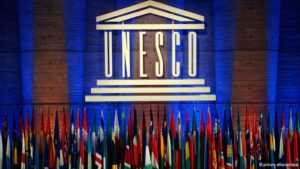Japan Withholds UNESCO Payment
 As one of the largest financial contributors to UNESCO, second only to the U.S., Japan has refused to disburse its $37 million payment. This refusal responded to UNESCO’s acceptance of the Chinese submission of the “Documents of Nanjing Massacre” into the Memory of the World register.
The UNESCO Memory of the World register is a global campaign to preserve historically important documents. Additionally, the “comfort women” document submission sponsored by 15 countries has agitated the Japanese. This is a collective effort to include 2,744 documents and materials related to Japanese-enforced sex slavery in the register.
As one of the largest financial contributors to UNESCO, second only to the U.S., Japan has refused to disburse its $37 million payment. This refusal responded to UNESCO’s acceptance of the Chinese submission of the “Documents of Nanjing Massacre” into the Memory of the World register.
The UNESCO Memory of the World register is a global campaign to preserve historically important documents. Additionally, the “comfort women” document submission sponsored by 15 countries has agitated the Japanese. This is a collective effort to include 2,744 documents and materials related to Japanese-enforced sex slavery in the register.
Both the Nanjing Massacre and the comfort women problem plague Japanese history. Most historians agree that in 1937, the Japanese killed around 300,000 Chinese in the southern city of Nanjing.
The comfort women dilemma refers to the Japanese Imperial Army’s forced prostitution of numerous women in several countries. It continues to cause tension between South Korea and Japan, where Japan has been forced to officially apologize and release sensitive documents that acknowledge their past acts.
Japan currently hopes to challenge UNESCO to prevent the organization from enshrining past atrocities and injuring Japan’s image. However, such a move poses serious risks. If Japan fails to pay for two years, it will lose UNESCO voting rights. This case appears analogous to the United States’ refusal to pay its dues after Palestine joined the organization in 2011.
Japan’s government has tried to push back against international criticism. Japan’s Liberal Democratic Party taken an unapologetic stance on the UNESCO issue. The party seeks to revise history in order to deny accusers and restore nationalist pride.
China has made official statements condemning Japan’s act as irresponsible. Chinese Foreign Ministry spokeswoman Hua Chunying says that the Nanjing Massacre was “a heinous crime committed by the Japanese militants” and that such a reaction shows the Japanese’s “erroneous attitude of facing up to history.”
